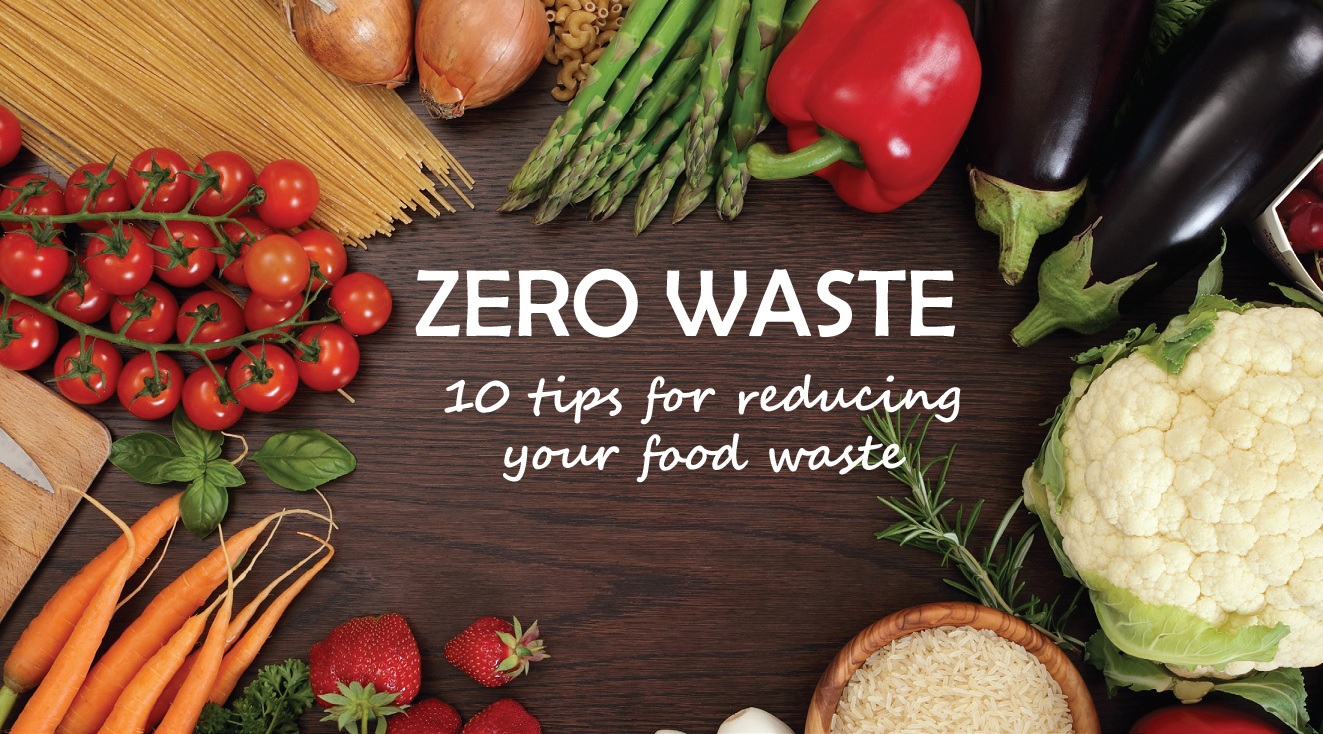
Zero Waste Week runs from 2-8 September, and the theme this year is called 'Use it Up!', with a focus on on tackling food waste. We've put together 10 easy tips on how you can reduce your food waste, as well as saving money!
1. Plan your meals and make a list
Planning out a weekly menu means you have a chance to base some meals around using up ingredients your already have in the cupboard, and helps to avoid impulse buying food that will end up going unused.
2. Buy fresh food in smaller amounts and more often
Most often the foods that go to waste are fresh foods such as dairy, fruit and veg, which are less suited to a weekly or fortnightly shop than staples such as tins and dried foods. Buying your fruit and veg more often but in smaller amounts means it is more likely to be used up quickly without going bad.
3. Store correctly
Fresh foods should be stored in different ways - for instance cucumbers should be kept in their plastic wrapping in the fridge, while potatoes are best kept in a cloth bag in a cool dark place. Check that you are storing foods at the right temperature and with the most appropriate type of wrapping to keep fresh. Vegetarian Times has some great tips on how to store your fruit and veg.
4. Be aware of portion sizes
Think about how much you generally eat in one meal, and cook only as much food as you will actually consume. It is particularly easy to under-estimate how much dried foods such as rice, pasta and grains will swell up after cooking - but if you use a cup or weight measure it will be easier to make sure you are only cooking as much as you need.
5. Check your expiry dates
Try and keep foods which will go off quicker towards the front of the fridge, so that you remember to use them in time. Also remember there are differences between expiry dates - a 'use by' date marks how long a food is safe to eat, whereas a 'best before' date usually mean when it begins to go down in quality (but may still be safe to eat). You can find out more about expiry dates in this NHS Choices food labelling article.
6. Ice ice baby
Make friends with your freezer. If you make too much of one meal, freeze it. If a carton of cream is near the use by date, freeze it. If you have some leftovers you won't be able to use in time, freeze them. Brown bananas can be frozen to use in cakes and smoothies. Even leftover wine (we know, we know, is there ever such a thing) can be frozen in ice-cube trays to use in sauces and casseroles. The Love Food, Hate Waste website has a video of freezable foods.
7. Be creative with leftovers
The simplest way is to take what you have leftover into work for lunch. But you can also stir leftover veg into soups and stews, chop up cooked meat to add to stir fries, or bulk up a frittata by adding cooked pasta or rice. If you can't use it immediately, see if you can freeze it to save for later.
8. Shop local
If you are in the position to buy from a local stall or market using reusable bags or a basket, you can reduce the packaging waste and plastic bags that usually go hand in hand with shopping at a supermarket. Even better, it is easier to buy only as much as you need.
9. Grow your own
This is easier said than done for many of us (after all, most of us can't have an orchard in the backyard). But if you have a small garden you could grow potatoes, radishes, or courgettes; a balcony can take a few pots of tomatoes; and even if you only have a window box, you can grow your own mint, parsley and basil. And of course if you do have a massive garden, why not go wild and plant a few fruit trees!
10. Muck in
If you have a garden, get a compost heap going. Even the best planners end up with some food scraps, but chuck your apple cores, banana skins, potato peelings and tea bags into a compost bin, and they will break down into a glorious tonic for your garden. If you don't have a garden, check with your local council, as many run brown bin schemes to collect kitchen scraps.


